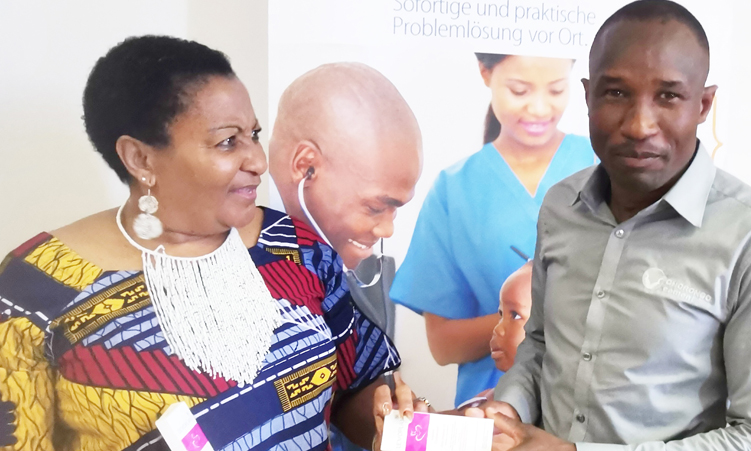Health and social services deputy minister Ester Muinjangue, has highlighted that contraceptives remain inaccessible to a significant number of people across various regions.
Muinjangue said this during the handover ceremony of 225 contraceptive implants, valued at N$400 000, donated by the Germany-based non-governmental organisation Support Ulm e.V on Monday.
She emphasised that the lack of access to contraceptives hinders the realisation of universal health coverage and jeopardises the future prospects of many families and communities.
“Contraception/Family planning is one of the most obvious areas for investment in reproductive health and rights. Therefore, there is a need to ensure that contraceptives are accessible, affordable, and available in a wide range of methods acceptable to consumers,” she said.
Namibia recently pledged its commitment to the Global Family Planning 2030 (FP2030) Partnership.
The objective of this partnership is to enhance family planning services, empowering more women and girls to make informed decisions regarding their sexual and reproductive health rights, and ensuring equitable access to affordable, high-quality family planning commodities and integrated services.
Muinjangue welcomed the donation, noting its potential to significantly address the unmet need for contraceptives.
She further highlighted that contraceptive implants are the preferred choice among adolescent girls and young women.
“Contraceptive implants offer a safe and effective long-term method of family planning. By providing adolescents with access to these implants, we are empowering them to take control of their reproductive choices, complete their education and pursue their dreams.
“This contribution aligns perfectly with our mission to create a future where every young Namibian can reach their full potential unhindered by avoiding early and unintended pregnancies,” she said.
The deputy minister clarified that the distributed contraceptives will primarily benefit the Kavango East and Ohangwena regions, which report the highest rates of teenage pregnancies in the country.
Petronella Mashabane, acting executive director of health and social services, emphasised that while contraceptives protect against unwanted pregnancies, safe sexual practices must still be upheld.
“We should not let people, especially the vulnerable youth, now believe that they are protected against sexually transmitted infections and HIV.
“We still emphasise that if you choose to have sex, use a condom, because the risk of pregnancy is sometimes only among the list of worries. If you get HIV, that is a lifelong illness,” she said.
Robert Nandjila, the acting director of primary healthcare, hailed the donation as a significant step towards ensuring adolescents’ access to reproductive services.
“This will allow them to make informed choices about their future,” he said.
Sion Amalovu presented the donation on behalf of Support Ulm e.V.
He said media articles have prompted this contribution.
“We trust that this donation will assist 225 girls to complete Grade 12 and not leave school as a result of an unwanted teenage pregnancy,” he said.
Support Ulm e.V and the health ministry have a long-standing technical cooperation agreement that makes provision for medical equipment to complement the existing facilities in the country.
Stay informed with The Namibian – your source for credible journalism. Get in-depth reporting and opinions for
only N$85 a month. Invest in journalism, invest in democracy –
Subscribe Now!






